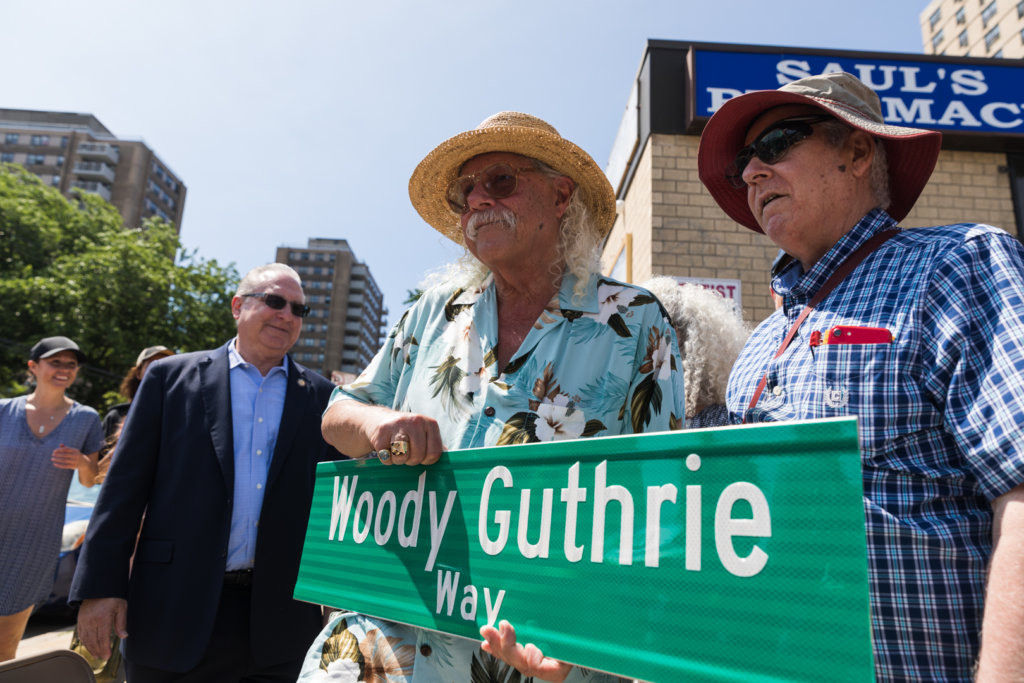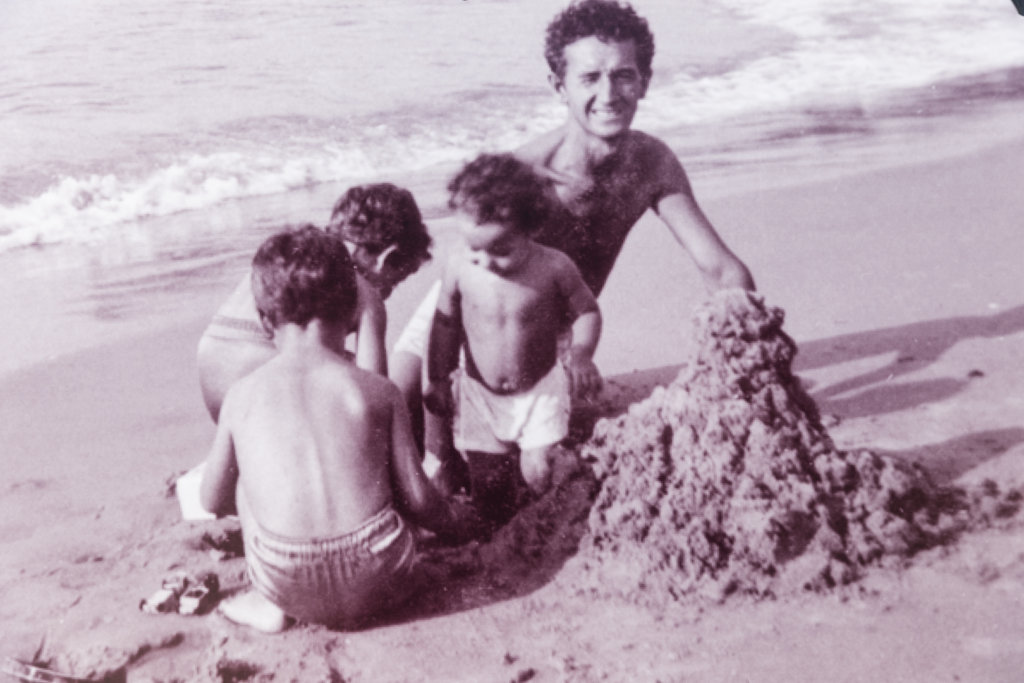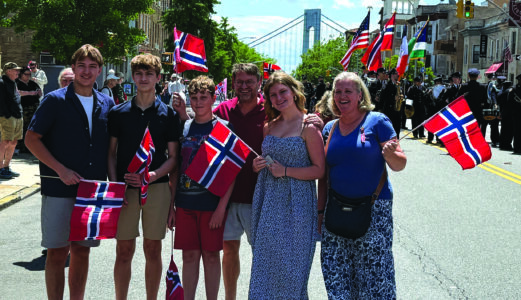There was a Guthrie family reunion on Mermaid Avenue and West 35th Street in Coney Island Saturday morning, June 22, when the children, grandchildren and great grandchildren of iconic folk singer Woody Guthrie met to see a stretch of the street named in his honor.
Guthrie, best known for this song “This Land is Your Land” and a sign taped to his guitar that read “This Machine Kills Fascists,” moved with his wife to a one-bedroom, $35-a-month apartment a block away in 1943. During his seven years living there, he raised a family, wrote and recorded at least 150 songs, and embedded himself into the local community.
“I love that we are being able to celebrate a little moment that has to do with what he did here and who he was,” said Arlo Guthrie, Woody’s son and fellow folk artist.
Arlo Guthrie said the stretch of Mermaid Avenue between West 35th and 36th streets wasn’t co-named because of his father’s musical career, but because of the life he led.
He reminisced about times when the singer would bring the family to Nathan’s to grab breakfast.
“We ate French fries; that was our breakfast,” Arlo Guthrie said.
And on the way back home, Arlo said his father would stop to speak with as many of the locals as possible.
“He would stop and talk to every person,” he said. “Every cop, every garbage guy, every old lady sitting out on the street, every grocer, everybody.”
“This is home, sweet home to us so one of the really lovely personal things about this whole event is that we were born and raised here on this street,” Nora Guthrie said.
The singer’s daughter and president of Woody Guthrie Publications, said her father believed that all you can write about is what you see, and so he wrote about the regular people that lived in the neighborhood.
But in addition to being a voice for the people, he’s regarded as never being afraid to take a stand against the world’s injustices, inserting politically-charged lyrics into his songs.
“I think it speaks volumes to the fact that Woody chose to use his gifts and talents and his abilities to turn them into not just song, but into a platform, into social, economic, racial, political justice,” said Councilmember Mark Treyger, who represents the area and who hosted the street co-naming. “His work, his legacy, his impact will be felt for generations to come.”




 Fifth Ave. Fest offers ‘fun’ for families
Fifth Ave. Fest offers ‘fun’ for families  On the Avenue: Norwegians march through Bay Ridge, celebrate heritage
On the Avenue: Norwegians march through Bay Ridge, celebrate heritage